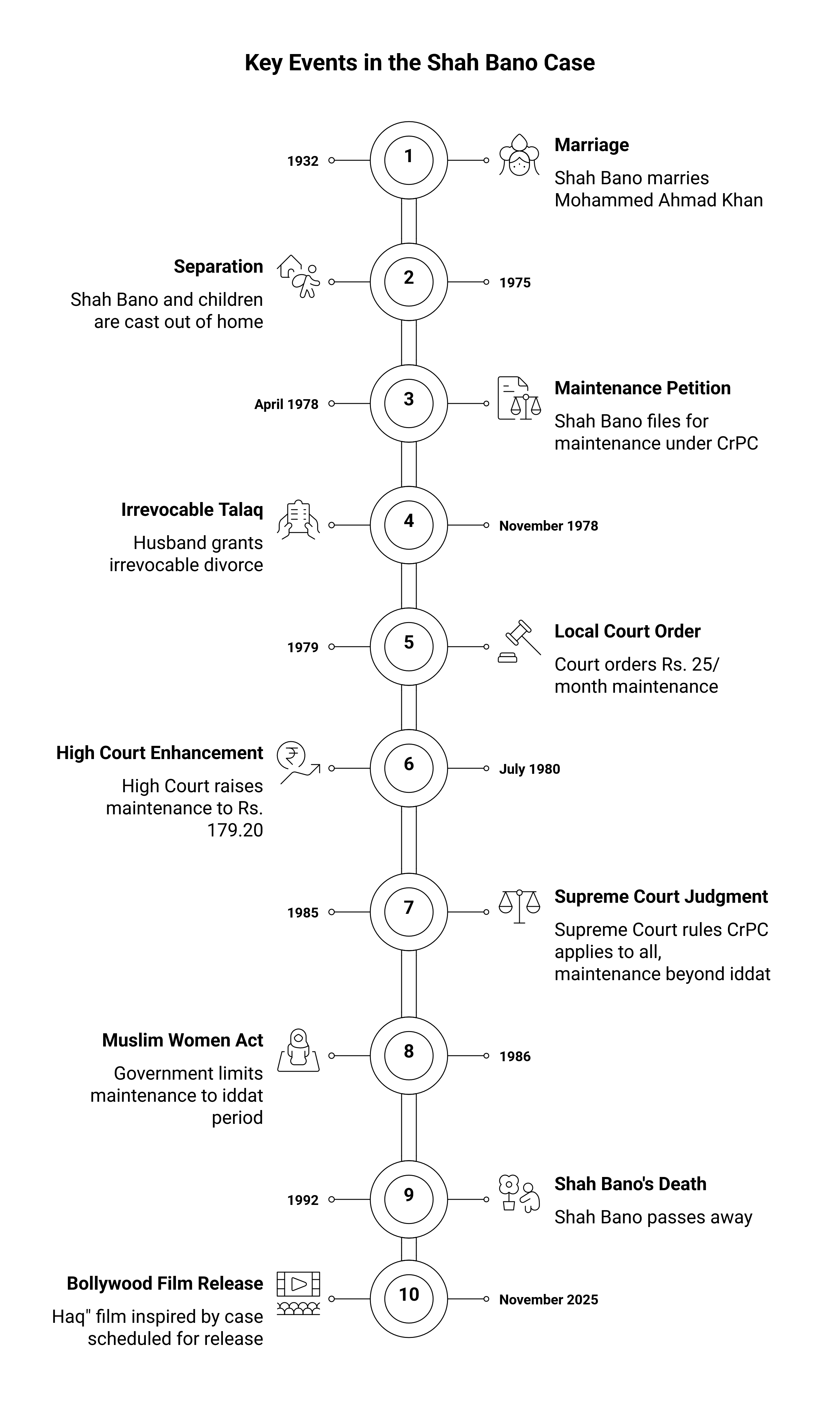Why in the News?
The upcoming Bollywood film revisits the historic Shah Bano case (1985), one of India’s most politically charged legal battles.

Background of the Case:
- Origin: In 1978, Shah Bano Begum, a 62-year-old Muslim woman from Indore, was divorced by her husband, Mohammad Ahmad Khan, a lawyer, via triple talaq after 43 years of marriage.
- Legal Action: She filed for maintenance under Section 125 of the CrPC (1973), a secular law ensuring financial support for dependents unable to maintain themselves.
- Husband’s Argument: Claimed that under Muslim personal law, his obligation ended after the iddat period (~3 months) and that payment of mahr (dower) fulfilled his duty.
- Lower Court Ruling: Ordered payment of ₹25/month; the Madhya Pradesh High Court raised it to ₹179.20. Khan appealed to the Supreme Court, triggering the landmark 1985 judgment.
Supreme Court Verdict of April 23, 1985:
- Bench & Ruling: A five-judge Constitution Bench led by CJI Y.V. Chandrachud dismissed the appeal, upholding the High Court’s decision.
- Secular Applicability: Held that Section 125 CrPC applies to all religions, as its purpose is to prevent destitution, not to regulate personal law.
- Maintenance Beyond Iddat: Affirmed that a divorced Muslim woman is entitled to maintenance beyond the iddat period if she cannot sustain herself.
- Religious Harmony: Cited Quranic verses to show consistency between Islamic principles and maintenance under secular law.
- Uniform Civil Code (UCC): Expressed concern that Article 44 remained a “dead letter,” urging steps toward a common civil code.
Muslim Women (Protection of Rights on Divorce) Act, 1986:
|
Legacy and Significance:
- Landmark Impact: Became a watershed case in India’s struggle between gender justice and religious identity.
- Political Consequence: The 1986 Act was seen as appeasement politics, deepening the secularism debates.
- Reform Catalyst: Revived the UCC discourse, influenced feminist legal reform, and reinforced constitutional morality.
- Enduring Symbol: Continues to shape discussions on minority rights, women’s empowerment, and judicial activism in India’s plural legal framework.
| [UPSC 2020] Customs and traditions suppress reason, leading to obscurantism. Do you agree? |
Get an IAS/IPS ranker as your 1: 1 personal mentor for UPSC 2024

